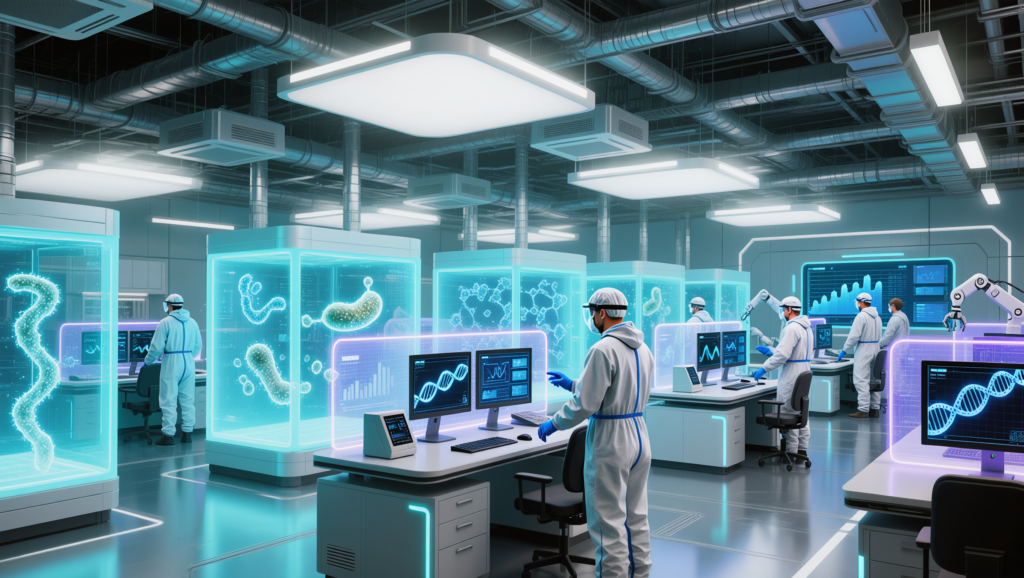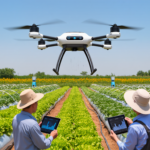Ever wonder how Silicon Valley keeps reimagining your kitchen? The latest big food-tech bet isn’t lab-grown burgers or the next kale chip—it’s precision fermentation, a technology that’s quietly reshaping what’s in your fridge and the future of what we eat. But what is precision fermentation, and why has it become the obsession of investors, techies, and food innovators alike? Let’s dive in, demystify science, and explore how this breakthrough could transform everything from cheese to meat, and why it’s getting billions in funding.
What Is Precision Fermentation?
Precision fermentation is the next evolution of biotech food production. At its heart, it uses specially engineered microorganisms, like bacteria, yeast, or fungi, to convert feedstock (usually sugars or waste ag products) into high-value food ingredients—think protein powders, vitamins, enzymes, or even animal-free dairy and meat components.
Here’s how it works:
- Scientists select a microbial host (often yeast or bacteria).
- They edit its DNA, inserting a gene that gives instructions to make a precise protein (for example, casein for dairy, heme for plant-based burgers, or collagen for supplements).
- The microbe is grown in bioreactors (think giant fermentation tanks), fed with nutrients, and begins producing the target ingredient.
- The desired product is extracted and purified—resulting in anything from animal-free cheese or ice cream, to lab-made honey, to vegan protein powders and vitamins.
Put simply: microbes become tiny protein factories, programmed to churn out exactly what we want.
Why Is Silicon Valley So Obsessed?
1. Solves Industry’s Biggest Pain Points
Few agricultural innovations have the potential to:
- Create animal proteins without animals—reducing climate, ethical, and disease risks.
- Reproduce dairy, eggs, honey, and meat at lower cost and with minimal land, water, and carbon impact.
- Make nutrition more predictable and scalable—microbes can manufacture ingredients year-round, no matter the weather, with consistent quality.
2. Massive Sustainability Wins
Precision fermentation can slash greenhouse gas emissions by up to 70%, use up to 95% less land, and 80% less water compared to conventional animal farming. It also helps avoid nutrient pollution and environmental damage associated with livestock production.
3. Innovation Opportunities Galore
Silicon Valley loves disruption, and precision fermentation allows almost limitless innovation:
- Companies can create entirely new foods (egg proteins in smoothies with no chicken required, cheese stretches without dairy cows, vegan honey that tastes and bakes like the real thing).
- It paves the way for personalized nutrition, specialty ingredients, and even pet food (UK just approved lab-grown meat for companion animals).
- The consistency, stability, and scalability mean that food can be customized, improved, or even imbued with health benefits via targeted DNA tweaks.
4. Outstripping Plant-Based and Cultured Meat Funding
In 2024, fermentation startups (especially those using precision fermentation) raised more than three times the investment of plant-based and cultivated meat companies. Tech-driven food companies like Formo (cheese), Melibio (honey), and Helaina (bioactive protein supplements) dominate headlines and venture rounds.
5. Billions in Funding and High-Profile Backers
From indie food-techians to the world’s largest brewery (AB InBev), the investment is staggering. Every—an “animal-free egg protein” unicorn—raised $240 million, partnering with multinational firms to scale up kitchens into microbial factories.
Examples—What’s Actually on the Market?
- Ice creams with cow-free milk proteins (Perfect Day).
- Egg protein for baking and smoothies—no chicken involved (Every).
- Lab-grown honey without bees (Melibio).
- Bioengineered cheese with the taste and stretchiness of dairy, but made with fungi or yeast (Formo).
- Bioactive protein blends for infant and medical nutrition—no cow in sight (Helaina).
How Does Precision Fermentation Compare to Traditional Fermentation?
Classic fermentation gives us foods like bread, beer, kimchi, or yogurt—where microbes convert sugars to acids, alcohol, or flavor molecules without direct genetic “programming.” Precision fermentation is about directing microbes to make specific, often animal-sourced, molecules—without the animal.
Challenges and Controversies
- Cost and Scale: Producing proteins at commercial scale still takes hefty investment and technical know-how. Extraction and purification must be efficient and food-safe.
- Regulation and Labeling: How do you label cheese made by genetically engineered microbes? Is it “natural,” “vegan,” or something new? The FDA, EU, and other regulators are still catching up.
- Consumer Acceptance: Not everyone embraces biotech food. While millennials and Gen Z lean into “food with a mission,” older consumers may balk at “lab cheese.” Transparent labeling and clear benefits are key.
The Future: Why This Is More Than Hype
- Global food security: Microbes don’t care about drought, feed price spikes, or zoonotic disease. Precision fermentation could democratize nutrition on a warming planet.
- Customization: Imagine honey tailored with probiotics, lactose-free “milk” proteins for allergy sufferers, and zero-cholesterol eggs on demand.
- Environmental safety: Engineered microbes cut pollution, reduce pesticide use, and minimize biodiversity loss.
Silicon Valley’s Playbook
- Speed: Tech-centric culture matches fermentation’s fast innovation cycles. New molecule? New recipe? A dozen startups can prototype, test, and scale with venture-backed speed.
- Cross-industry partnerships: Tech unicorns and food giants are forming alliances to quicken market adoption (see EVERY + AB InBev collaboration).
- Data and AI: Algorithms optimize fermentation conditions, yield, and even flavor, making every batch smarter and more precise.
The Bottom Line
Precision fermentation is the tech world’s answer to old-school farming. By brewing animal proteins and unique molecules with genetically engineered microbes, it slashes environmental impact, unlocks new foods, and promises a tastier, cleaner plate for billions. Silicon Valley (and serious investors worldwide) aren’t betting on a fad—they’re banking on what could be the most transformative food revolution since refrigeration.
Next time you see “animal-free dairy” or “lab-grown honey” on a menu, know it’s not just the future—it’s precision fermentation in action.








